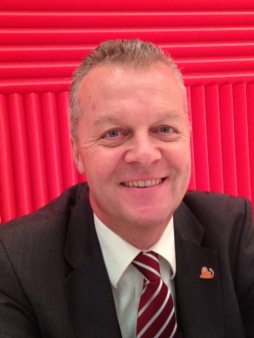
ING eyes moving some European operations to Asia
Check out our exclusive interview straight from Sibos in Dubai.
Asian Banking and Finance editor Tim Charlton recently caught up with Gerlach Jacobs, ING's Global Head Transaction Services, during Sibos in Dubai. Find out how he finds the current trade finance market.
ABF: It's been a tough year for the transaction bankers. Volumes are okay, up a little bit but margins are down quite a lot. How has ING found it, particularly with reference to the Asian market?
From an ING perspective, the two areas where margin compression has been most evident are payments and cash management. But we are primarily a European player so we do not offer those products to Asia. We only do so in Western and Central-Eastern Europe. Clearly, based on very low interest rates, margins are moving to historical lows.
Asia, from the trade perspective, is a very important market for us although we are predominantly a European-based bank. We want to be involved and we are involved in trade floors to and from Asia and usually with a link to Europe.
Margins are low certainly due to a lot of liquidity available certainly in the US dollar market and we still do a fair amount of trade launch but we have seen margins compress quite a lot.
ABF: Who do you think is gaining in terms of that business? Is it the local banks being more aggressive or do you think it’s the international banks?
I think it's both. I think you look at banks that have ample dollar liquidity that can still at least attain regional margins of business. It's less margin for everyone.
ABF: Since the last 12 months, what changes have you seen happening in the market? We've heard a lot talk about increased cost of regulation, compliance, and more tracking data around transactions. How has that been a challenge for you in ING? What did you particularly have to do?
Generally the whole industry had to invest in making sure that we keep abreast with the requirements of regulators and that has increased the cost. So the trends that I see here is that if the costs go up, people look at how they can do business more efficiently.
For instance, in trade, we are investing in more front-to-back systems. We're also looking into having more operation centres so we can concentrate on as few locations as possible making sure that we are still in relevant time zones.
ABF: So how many operation centres do you currently have in the global transaction business and how many do you think you can get to?
It depends on the product. If you look at trades, a couple of key trade locations will be Amsterdam, Brussels, Singapore, and Hong Kong. But operations-wise we are looking at concentrating all our operations in Asia for the Asian business but also seeing what part of our European operations we can move to Asia.
ABF: And where is that being done in Asia?
We are looking at establishing our operations in Manila. That will support our global business but it's not just for Asian business but we'll also move part of operations from Europe, if possible, and depending on time zone sensitivity.
ABF: What’s your outlook for next year as obviously interest rates may be on the rise?
There’s a general need for banks to invest a lot on their systems both from a regulatory and compliance perspective.
I'll be pleased if rates would move up a little bit and that means that there's less pressure in some of those products on the revenue line. Your volumes are generally okay but the margins have compressed.
I would also say certainly one of our main currencies is Euro, but negative Euro interest rates don’t exist. But you know if normal interest rate would move very closer to zero, you would normally go below zero. That's not done in the markets and we don’t see it coming either.
Therefore I think it's not only for revenue lines. For banks it’s a good sign that margins or that interest rates move up a bit, I think it's generally a good sign that the economy is recovering a bit.
ABF: So anything you've seen at this year's Sibos that is a little bit different or interesting, that you didn’t already know?
I think it's a busy Sibos, all banks are there. I don’t see a lot of difference. I think, to be honest, people are a lot more positive than last year. That probably has to do with the fact that economies are doing a bit better despite that the regulation has been increasing. People have adapted to and accepted it and now it's time to move on based on new models and move forward. Frankly, I see some relief to the industry with the growth that continues to be very decent in Asia.






















 Advertise
Advertise








